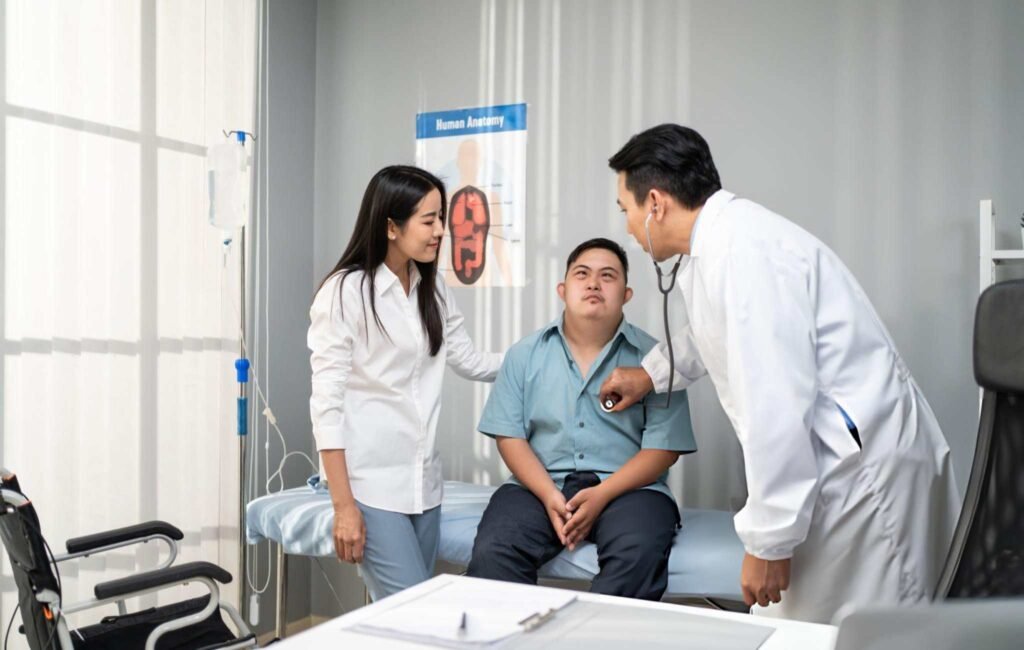


For elderly persons, especially those with Down syndrome, in-home care services have become an essential answer. These services guarantee safety and comfort in familiar surroundings, support people in keeping their independence, and enhance their quality of life.
which they can assure This blog investigates the several advantages of in-home care services for elderly persons with Down syndrome as well as why they are a necessary component of health and well-being for people with different requirements.
Personalized healthcare services delivered in the convenience of a person’s home are what in-home care services are. From medical treatment, including medication management and physical therapy, to help with daily tasks, including personal care and housework, these services cover a spectrum.
Particularly for older persons with Down syndrome who might need specialized attention, in-home care provides the option of customizing care to the particular needs of every individual.
Customized care plans offered by in-home care providers meet the specific requirements of persons with Down syndrome. These programs guarantee that every person gets the treatment they need to flourish, whether it be for therapy, medication management, or daily activities.
Maintaining independence is generally a top goal for elderly persons with Down syndrome. In-home care allows people to live in familiar settings while getting help with things like mobility, bathing, or dressing—that which they might find difficult. Their self-esteem and quality of life get better when they strike this mix of help and autonomy.
Closely observing a person’s health, in-home caregivers can find possible problems before they become major. Frequent visits and health evaluations assist avoid difficulties, thereby giving people’s relatives as well as themselves a piece of mind.
One of the often-overlooked benefits of in-home care is the companionship it provides. From isolation, older adults with Down syndrome may develop anxiety and depression. Caregivers provide emotional support, participate in activities, and provide the social connection that is vital for mental health.
In-home care may help to reduce the need for frequent hospital visits through preventative care, assistance with chronic condition management, and early addressing of health concerns. Fewer hospitalizations resulting from this help to lower the stress and financial load related to medical emergencies.
Home care allows persons with Down syndrome to stay in familiar, comfortable circumstances, therefore reducing the stress associated with stays in a hospital or nursing home. Being surrounded by family and their belongings enables one to feel secure and protected.
Unlike typical healthcare institutions, in-home care offers a more flexible schedule. This implies that care can be changed to match the particular needs of the person, whether it is adding more support on particular days or modifying treatment for special events.
Stressing a complete approach to health, in-home care attends not only to physical but also to emotional, mental, and social well-being. Trained to provide a complete support system that nourishes the individual as a whole, caregivers help to raise their general level of life satisfaction.

In-home care may be useful when an older adult with Down syndrome encounters any of the following:
Should any of these issues surface, in-home care services can be the perfect answer to guarantee safety and offer the required support.
When selecting an in-home care provider for an older adult with Down syndrome, consider the following factors:
Search for providers who have dealt with people with Down syndrome and know the particular care needs and difficulties related to the condition.
Ensure the provider offers tailored care plans that meet the individual’s specific health needs, preferences, and goals.
Select a service that guarantees a good experience for your loved one by selecting a provider with caring and qualified caregivers who can provide both medical treatment and emotional support.
Services for in-home care give elderly persons with Down syndrome great assistance. If you are looking at in-home care for a loved one with Down syndrome, research the several benefits these services offer to improve happiness, well-being, and health. From tailored care plans to emotional support and improved health monitoring, in-home care lets people keep their freedom, enhance their quality of life, and have peace of mind.
Call to Action:
To learn more about in-home care services and how they can benefit your loved one with Down syndrome, Safe Haven Community Living for expert guidance and support in choosing the right care plan.